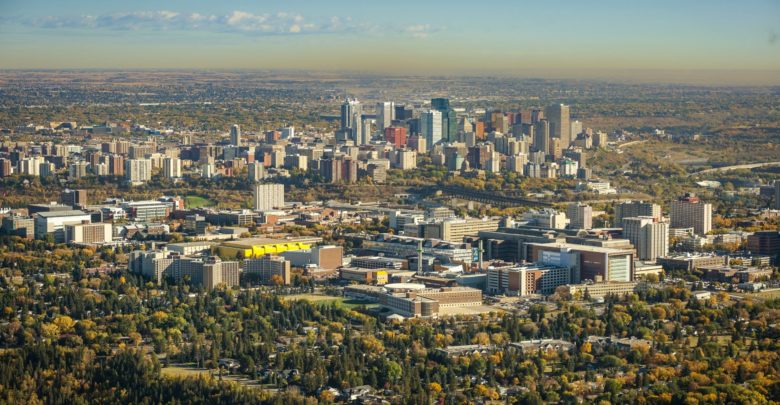U of A implements hiring freeze, effective January 1
“The U of A expends a smaller fraction of its operating budget on ‘academic teaching’ than all other big research and teaching universities in Canada,” AASUA President says.
 Richard Siemens
Richard SiemensOn December 17, the University of Alberta announced a hiring freeze effective January 1. The hiring freeze will “[remain] in place until further notice,” according to a memo sent to hiring managers.
According to a comment provided to The Gateway from U of A Media Relations, “the hiring freeze and associated approval process are organizational tools to control expenditures. Additionally, inflationary pressures are currently impacting people and organizations everywhere, and the university is no exception.”
Quinn Benders, president of the Non-Academic Staff Association (NASA), said the university “cannot continue to whittle away at staff resources because that’s going to impact the community.”
“If we continue to cut staff positions and they’re not able to do their jobs effectively, then we have long-term consequences for services provided, the university’s reputation, the student experience, faculty support, and so on,” Benders said.
Gordon Swaters, a professor in the department of mathematics and statistical sciences and president of the Association of Academic Staff at the U of A (AASUA), does not think that this is a “hard and fast hiring freeze.” Academic teaching staff (ATS) — staff that are on short-term contracts — will not be affected, Swaters said.
“We don’t see the announcement as a hard freeze. If departments and faculties can make the case, then they will be able to hire,” Swaters said.
AASUA and NASA concerned about the student experience and service quality
One of the main concerns that AASUA has is that students will be negatively impacted by the hiring freeze. “The problem is that I don’t see how it enhances your learning experience as a student for the university to start hiring fewer people to teach,” Swaters said.
According to Swaters, the U of A has been directing money in its budget away from paying academic staff in order to afford other things. “The U of A expends a smaller fraction of its operating budget on ‘academic teaching’ than all other big research and teaching universities in Canada,” Swaters said.
“The university needs to spend more of its resources on frontline teaching and research, and by not doing so, we worry that [students’] learning experience will be diminished over time.”
According to a statement NASA released in response to the hiring freeze, “this approach will compromise [non-academic staff’s] ability to provide critical support to students, faculty, and the university community.”
Benders is worried that the hiring freeze will lead to a decline in service quality and that the freeze will “disproportionately affect non-academic staff.”
“We provide so many services to students and faculty and to the operations of the university. With a hiring freeze, that means less staff to do what is tough already,” Benders said.
The university needs to start hiring faculty to accomplish goal of increasing enrolment, Swaters says
In order for the U of A to accomplish its plans of increasing enrolment, Swaters said the university needs to start hiring faculty now. In September 2023 the U of A announced SHAPE: The University Strategic Plan, which set the goal to increase enrolment from 44,000 to 60,000 by 2033.
“What I’m worried about is that we might have these grandiose plans of increasing enrolment by 36 per cent, but we don’t really have the institutional capacity to teach them properly,” Swaters said.
Despite the U of A’s plan to increase enrolment in addition to the hiring freeze, “continuing to ensure a world-class educational experience both within and beyond the classroom is among the university’s foremost priorities,” according to a comment provided by U of A Media Relations.
The hiring freeze “has not dampened our resolve,” Swaters says
Since March 2024, AASUA has been in bargaining with the university for a new collective agreement. Swaters said that they are now beginning to address compensation and benefit plans for academic staff at the U of A.
In response to the announcement of the hiring freeze, Swaters sent a statement to the members of AASUA. According to Swaters, the purpose of the statement was not only to reassure AASUA members, but also to deconstruct the purpose and implications of the hiring freeze.
The hiring freeze “has not dampened our resolve in this round of bargaining,” Swaters said.
“An important objective of ours is to reduce the [short-term] economy in academia and transition these people away from being contract academic staff to full-time permanent,” Swaters said.
“We’ll continue to advocate,” Benders says
NASA is currently working towards a potential joint initiative with other unions on campus to respond to the hiring freeze, according to Benders.
“We’ll continue to advocate to make sure that critical staff needs are actually put in place.”
According to Benders, NASA has lost roughly 20 per cent of its earning power over the last two contracts.
“We’re concerned about hiring because one of the two most important things to staff on campus is our financial decline and not being able to afford our current standard of living. The other is workloads, and this will directly have an impact on workloads,” Benders said.
“I think we’re going to have a lot more challenges at the U of A,” Benders says
According to Benders, increased demands on staff and inadequate staffing is setting a concerning stage for the future.
“The problem lies with inadequate funding to the entire post secondary community in Alberta and the U of A in particular. Until that’s addressed, I think we’re going to have a lot more challenges at the U of A,” Benders said.
“We have to work with the students to stand together to make sure that this university will be accessible to [future generations] as well,” Swaters said.




